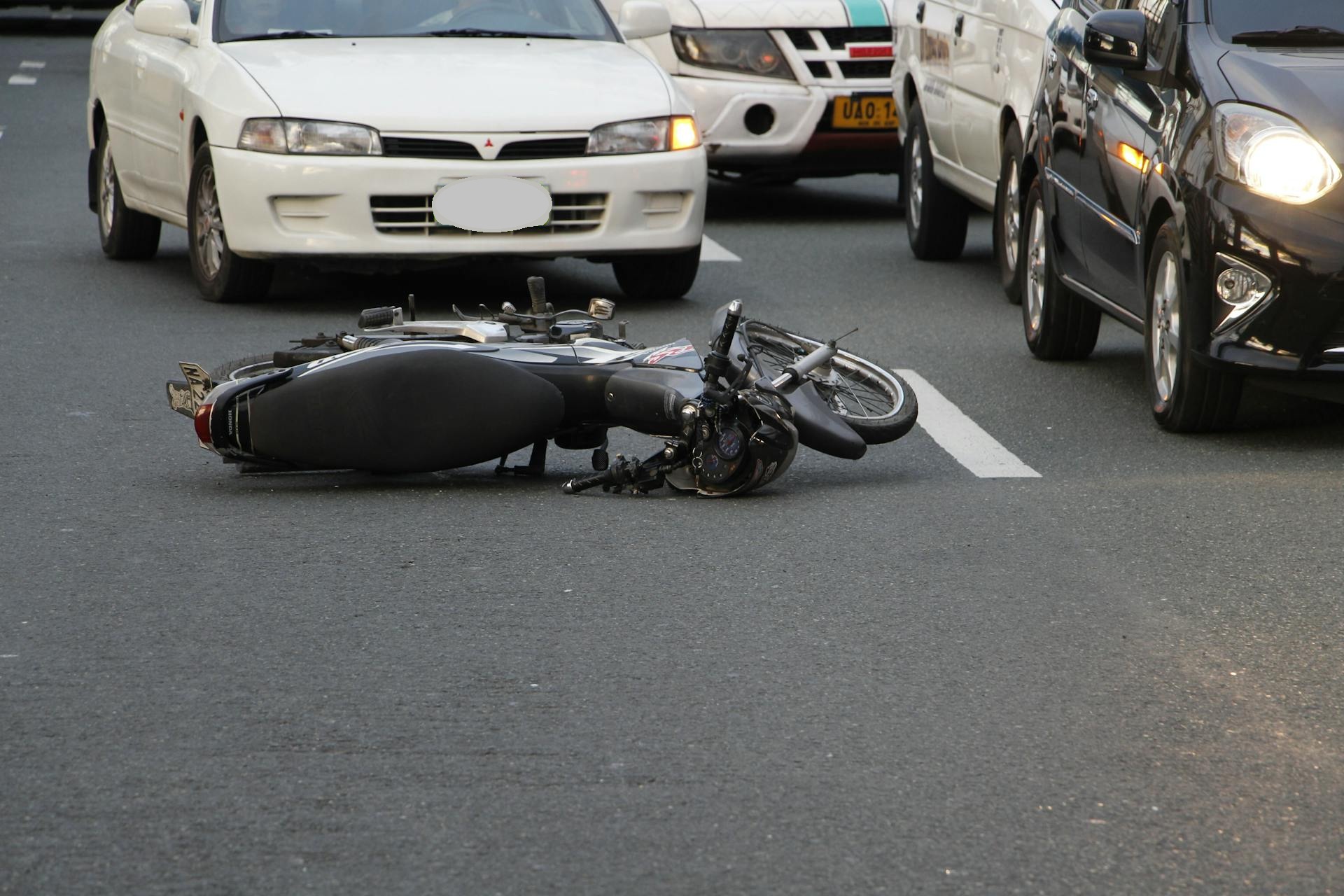
Rear-End Motorcycle Accidents Are Common
The NHTSA reports that approximately 25% of motorcycle crashes are rear-end collisions. Most commonly they occur when the rider is stopped in traffic, and the incoming motorist fails to slow or stop in time. Even a minor impact can have severe consequences as riders may be thrown from their bike and subject to severe injuries. The Car Crash Captain explores what’s going on, and what you should know if you’ve been injured in a rear-end motorcycle accident.
Why Riders are Vulnerable in Rear-End Motorcycle Accidents
It’s easy to see that those on motorcycles are more susceptible to injury simply because they don’t have a protective box around them.
If a car is rear-ended, then whiplash is a common injury due to the sudden jerking motion of the head. This can happen on a motorcycle, however, that is likely going to be the least of the rider’s worries.
Head trauma, spinal injuries, and rib and pelvic fractures are common in motorcycle accidents. Being thrown from the bike causes the body to often hit pavement or another vehicle in a way that damage is done to one of these major areas.
Road rash isn’t as big of a concern when speeds are slow, however it can still be a problem if protective clothing hasn’t been worn. Internal organ damage, lacerations, and fractures are other injuries that are common as a severe rear-end motorcycle accident can lift the entire motorcycle up and flip the rider into the air.
What is Presumed Negligence?
In many areas, including Texas, have a law that says when you’re involved in a rear-end accident, the driver behind (the one that does the rear-ending) is presumed to be at fault.
There are times, however, when this can be challenged. Brake checking, for example, that leads to a rear-end accident, can be challenged and the person doing the brake checking might be held liable, or at least partially liable.
Causes of Rear-End Motorcycle Accidents
The primary cause of a rear-end motorcycle accident: following too closely. Motorcycles are lighter than other vehicles, and they not only can accelerate faster than a car, but they can stop faster as well. When a motorist is following too closely, and the biker has to brake suddenly, the motorist doesn’t have time to react before crashing into the back of them.
This doesn’t mean there aren’t other causes as well.
- Distracted driving remains an issue. Combined with the smaller size making a motorcycle and its rider harder to see means glancing at your phone can have terrible consequences.
- Driver fatigue means slower reaction times.
- Driving under the influence is still a problem and with all the public transit and rideshare options it really shouldn’t be.
- Road rage can kill people.
If you ride, you have to be extra diligent to watch out for the poor driving behavior of other people, as well as maintain your own riding.
Establishing Fault – Evidence that Helps Your Case
Insurance companies love to argue that the motorcyclist was in the wrong. Because when you read the news about a bike wreck, it’s often the sensationalized ones where the rider was ripping through the streets at 100mph without regard to others. However, that’s only a fraction of the actual motorcycle wrecks.
Instead, over 60% of wrecks are actually the fault of the other motorist (some studies put that number even higher). Because there is an automatic bias against the biker gathering evidence is key.
Photos of the crash scene, eyewitness statements, and a police report that details citations and observations are key to helping establish fault and ultimately build your case.
Talk with Herbert Law Group Before the Insurance Companies
But what’s really going to help you receive the compensation you need to fully recover from your injuries is an experienced motorcycle wreck lawyer here in Texas.
Herbert Law Group knows how to deal with insurance companies, and how to fight for the maximum when it comes to your well-being. Before you talk with anyone representing an insurance company, we need to have a conversation.
Call our offices at 214-414-3808, or fill out the contact form on our site, and we’ll figure out how we can help, and how you can find justice after a rear-end motorcycle accident.